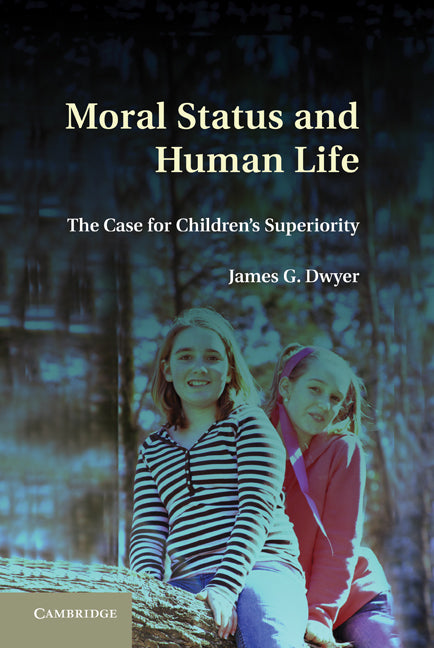Freshly Printed - allow 8 days lead
Couldn't load pickup availability
Moral Status and Human Life
The Case for Children's Superiority
This work of applied moral philosophy develops a comprehensive account of how adults as moral agents ascribe moral status to beings.
James G. Dwyer (Author)
9780521766913, Cambridge University Press
Hardback, published 21 October 2010
220 pages
23.4 x 15.9 x 1.6 cm, 0.43 kg
'Traditionally, children have been thought to be an example of such 'hard cases'. Their abilities to reason seem modest compared to those of adults', they are less able of autonomy and, at least up to a certain age, their sense of morality is not fully formed … The most remarkable feature of James Dwyer's book is that it turns this picture on its head. The author argues that, far from thinking that they are less morally considerable than adults, we should regard children as having higher moral status than adults.' Anca Gheaus, Metapsychology Online Reviews
Are children of equal, lesser, or perhaps even greater moral importance than adults? This work of applied moral philosophy develops a comprehensive account of how adults as moral agents ascribe moral status to beings - ourselves and others - and on the basis of that account identifies multiple criteria for having moral status. It argues that proper application of those criteria should lead us to treat children as of greater moral importance than adults. This conclusion presents a basis for critiquing existing social practices, many of which implicitly presuppose that children occupy an inferior status, and for suggesting how government policy, law, and social life might be different if it reflected an assumption that children are actually of superior status.
1. What is moral status and why does it matter?
2. How is moral status determined?
3. Selecting criteria of moral status
4. Problems in applying a multi-criterial approach
5. Applying a multi-criteria moral status test to adults and children
6. Legal, policy, and moral implications of children's superiority.
Subject Areas: Family law: children [LNMK], Jurisprudence & philosophy of law [LAB], Sociology [JHB], Social & political philosophy [HPS]


